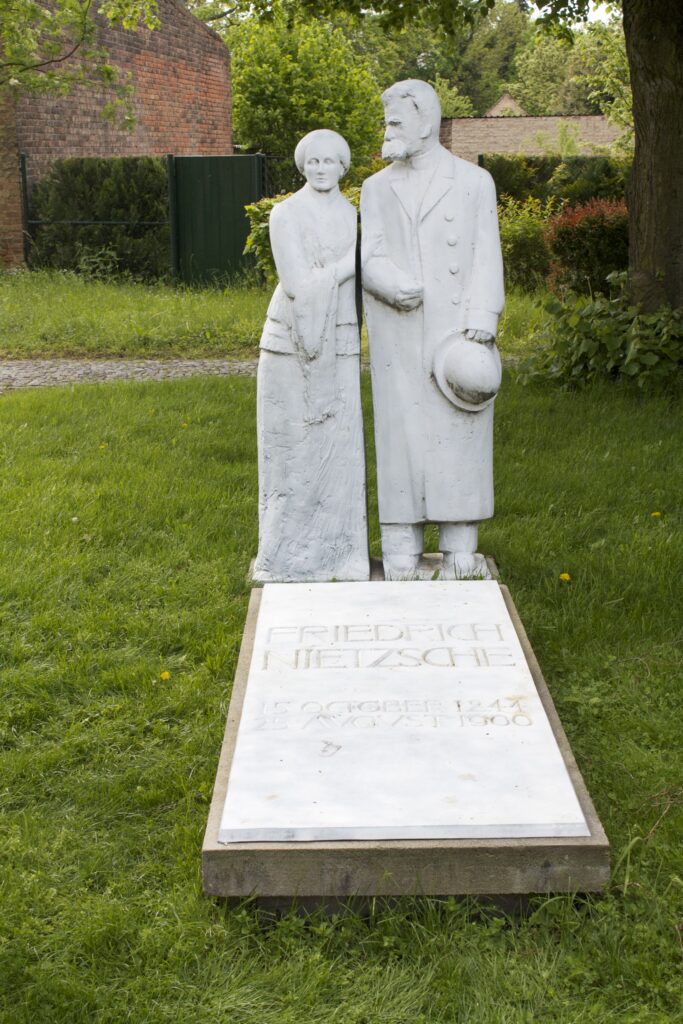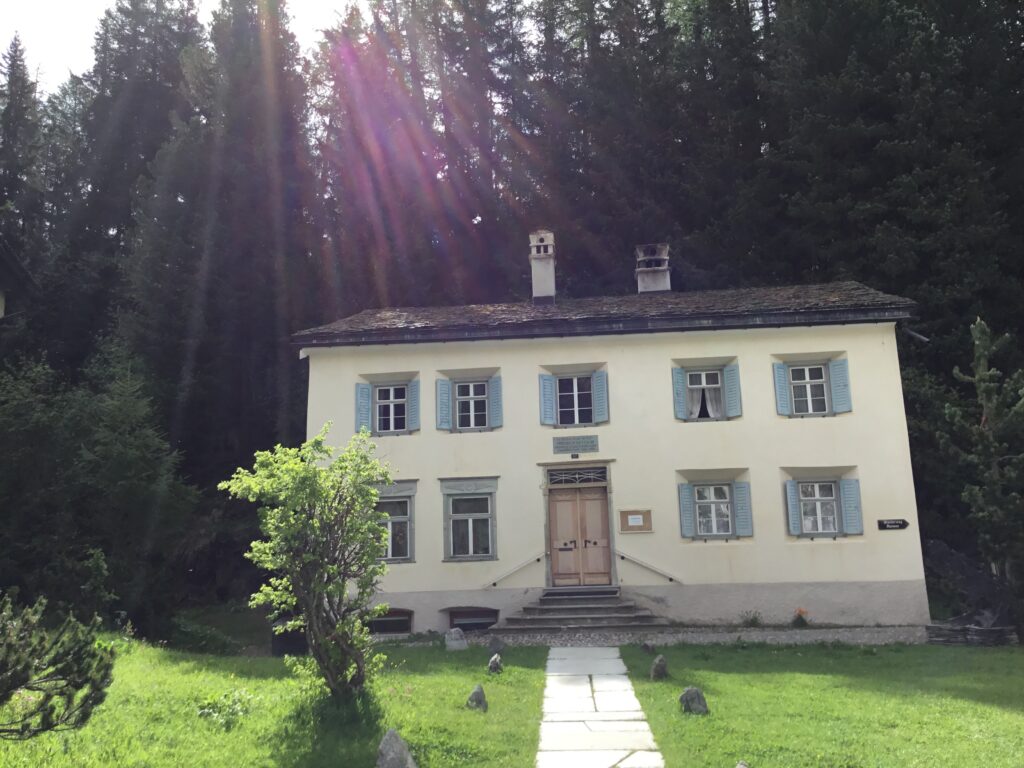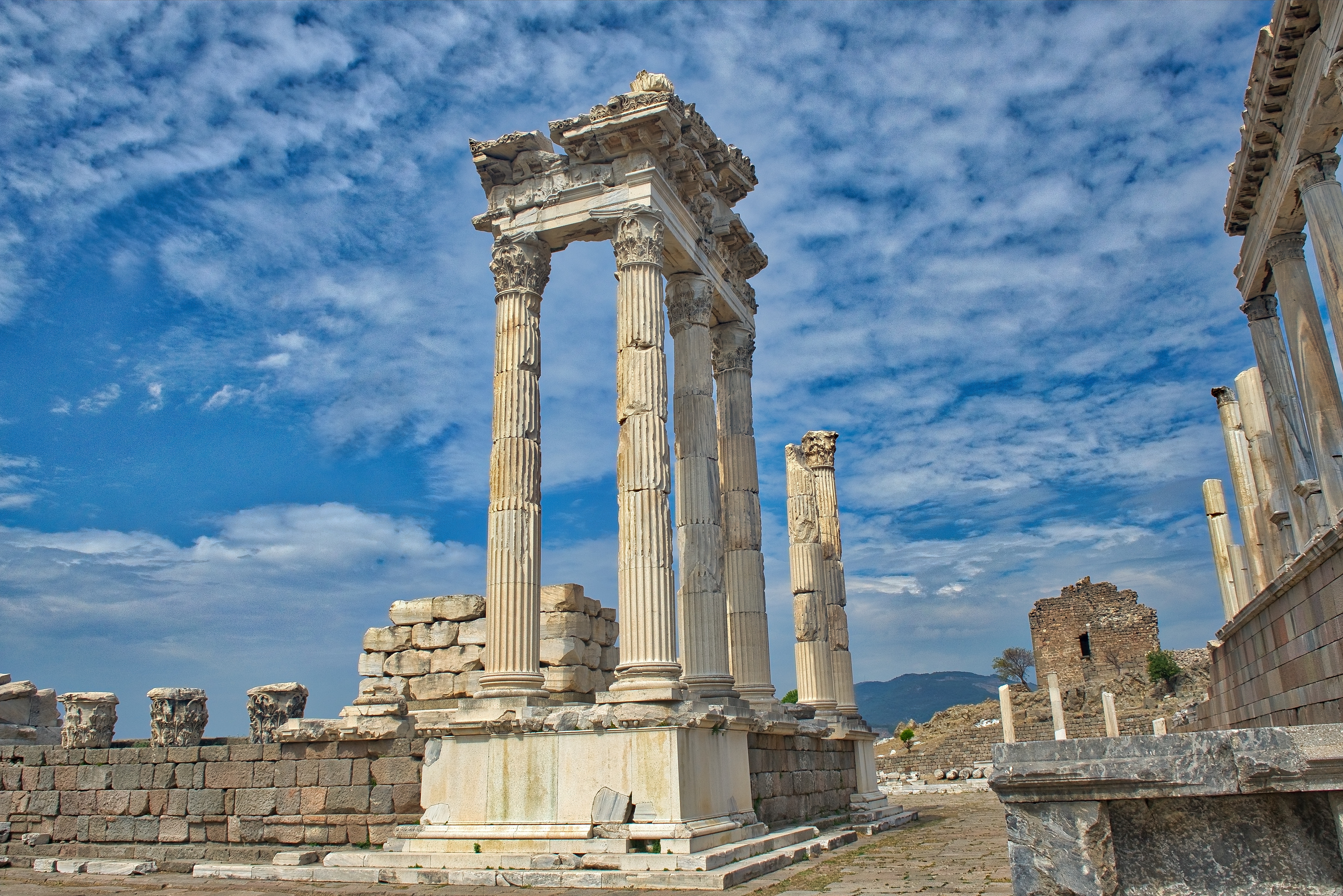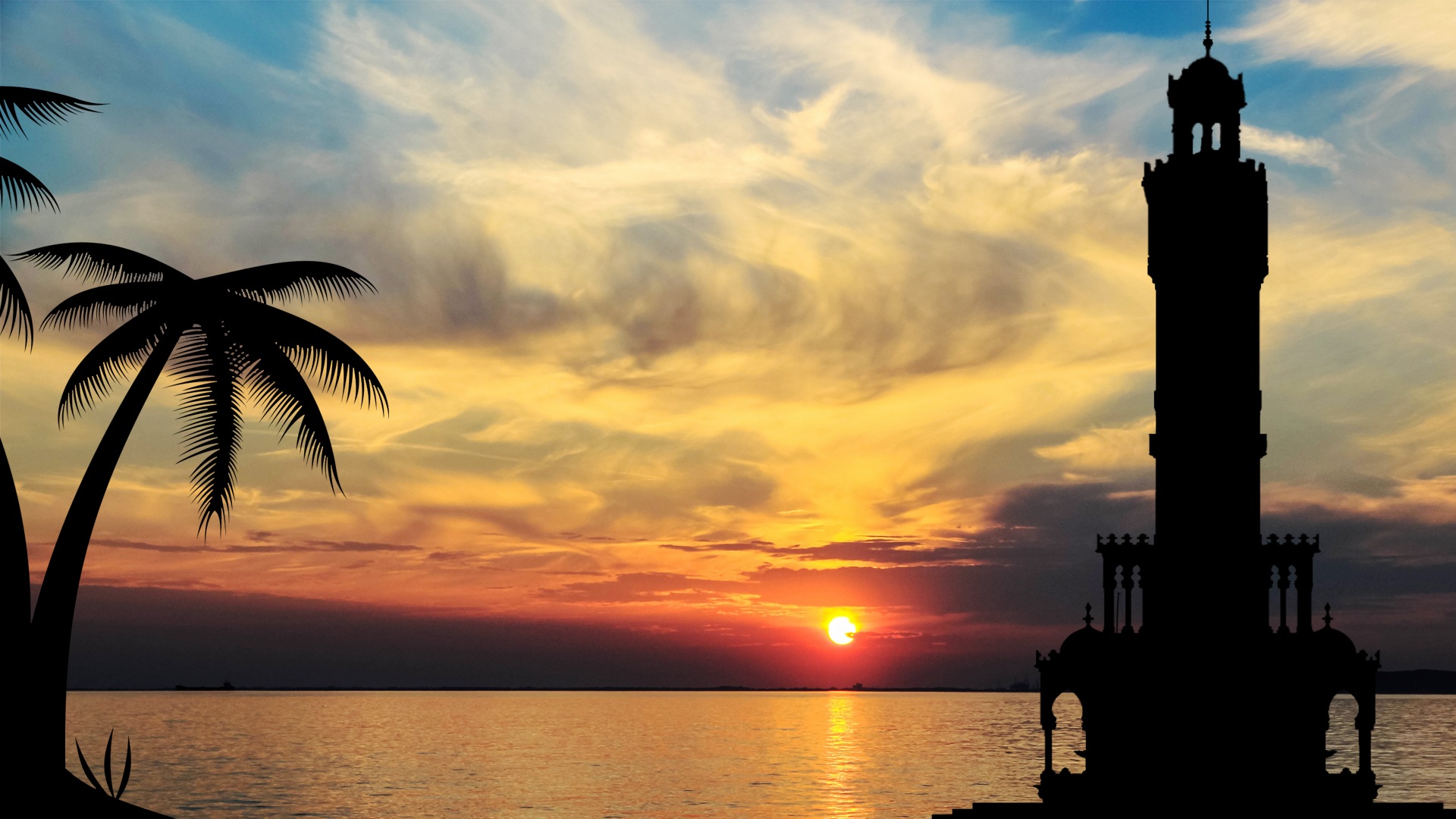Historic Tour of the Cappadocia Region
TRIP COORDINATOR: Yunus Tuncel
DATES: June 6 – 14, 2025

In this trip, we will take a detailed tour of Cappadocia, visiting its several historic sites and natural treasures. From hikes in the Red Valley to pottery and rug-weaving classes, this trip will encompass all of Cappadocia’s marvels.
General Itinerary
Philosophy and Music of Friedrich Nietzsche
TRIP COORDINATOR: Yunus Tuncel
DATES: March 27 – April 5, 2025

In this trip, we will visit villages, towns, and cities where Nietzsche lived and discuss his life, works, ideas, and music. The trip starts in Berlin where a Nietzsche and music event will take place. After Berlin, the trip will continue to Leipzig where Nietzsche studied philology. From there, we visit Röcken where Nietzsche was born and spent the first few years of his life (1844-1848), Naumburg where he grew up, and Schulpforta gymnasium which he attended from 1858 to 1864. Our next stop will be Weimer where our second Nietzsche and music event will take place. In Weimar we will visit the Nietzsche Kollegium, which is the last place where Nietzsche spent the last 3 years of his life (1897-1900) under the care of his sister, Elizabeth Förster-Nietzsche. From Weimer, we visit Jena and the mental asylum there (if accessible) where Nietzsche spent about a year after his collapse. The last place to visit is Bayreuth, the theater and the Wagner Museum, as we explore Nietzsche and Wagner’s relationship. From Bayreuth we return to Berlin for departure. Along the way, we plan to meet with scholars and directors of institutes and have dialogues with them on Nietzsche’s relevance to contemporary society.
What is not included: flights, all meals that are not included (all lunches and 6 dinners), transportation in Berlin (if needed), museums (other than Nietzsche houses/museums), travel insurance and personal expenses.
General Itinerary
18:00 – Meeting in the hotel lobby
Schedule of Readings/Discussions:
19:00 – Welcome dinner at (TBC) (included)
Introduction to the trip, German philosophy and the spirit of times of the 19th century Europe and Germany. Introduction to the life of Nietzsche, his philosophy and music.
Schedule of Readings/Discussions:
Introduction to Nietzsche’s intellectual background (High School and University years) and to his early writings from the Nachlass 1870-74. Readings: TLNS and BT. More information on Nietzsche’s musical background and compositions.
Schedule of Readings/Discussions:
Discussion on Greek culture and tragedy and BT. Discussion of 19th century music and Nietzsche’s musical background.
Schedule of Readings/Discussions:
Discussion on the first three untimely meditations and Nietzsche’s critique of modern age. The impact of music and his musicality on his writing and thinking.
Leipzig at 9:00am. After hotel check-in and a short break, a lunch at the historic restaurant. PM: Visit to Leipzig University where Nietzsche studied and other sites of interest. Meeting with professors of classics (TBC). A music tour of the city by a tour guide (details TBC). Overnight in Leipzig.
Schedule of Readings/Discussions:
Bio: Nietzsche’s university years, 3 years in Leipzig as a student of Greek philology. Bio: Nietzsche’s life after academia. Readings from Human, All Too Human, Daybreak and The Gay Science. Lecture on the aphoristic genre in literature and his books of aphorisms. HAH, D, and GS. Readings from a selection of aphorisms. Nietzsche’s friendship with Paul Rée and Lou Salomé. And with Meysenbug. Nietzsche-Wagner encounter (first meeting happens in Leipzig). On Nietzsche and Wagner on music, arts and culture.
Schedule of Readings/Discussions:
Bio: Back to Nietzsche’s early years, with some detailed reflection from Daniel Blue’s biography. Reading and discussion of TSZ. Music: Nietzsche’s musical activities during Schulpforta years.
Schedule of Readings/Discussions:
The last three years of Nietzsche’s life in insanity at the Weimar house. Introduction to Nietzsche’s critique of morality. Reading: BGE, GM, TI, A, and EH.
Schedule of Readings/Discussions:
Bio: Nietzsche’s life at the Jena Mental Asylum (1890-1897). Nietzsche’s visits to Bayreuth. Nietzsche’s friendship with Wagner and its end. And Cosima Wagner. Introduction to the idea of eternal
return and TSZ. Reading and discussion of “UM IV: Richard Wagner in Bayreuth” and Nietzsche’s complex relationship with Wagner. Other readings: CW and NCW. Continued: Introduction to Nietzsche’s critique of morality. Readings from: BGE, GM, TI, A, and EH.
Nietszche Retreat in Sils Maria, Switzerland
INSTRUCTOR: Yunus Tuncel
DATES: TBA

This PhiloRetreat is a workshop to read and discuss selected works by Nietszche as well as hiking in the Alps.
This retreat is prepared to explore the teachings of Friedrich Nietzsche in Sils Maria where he spent several summers and was inspirational for many of his works, including his seminal Thus Spoke Zarathustra, his gift to humanity. As we experience the house (now museum) where he stayed and the region within the context of its inspirational role, we will read and discuss some of his works. The retreat will include the following: a) explore the house/museum, meet with its director and others who played a role in its foundation, including Peter André Bloch (TBC); b) walking in the vicinity and hiking in the mountains, including Silvaplana, St. Moritz, and the mountains around Sils Maria; and c) reading sessions. Along with these activities, we will also cook and eat together. For getting around (if and when needed), we will rely on public transportation.
General Itinerary – TBA
History of Psychoanalysis Part I: Freud in Vienna
INSTRUCTOR: TBA
DATES: TBA

This PhiloTrip will explore the rich history of Sigmund Freud in Vienna.
We will focus on the origins of psychoanalysis through Freud’s life in the Austrian capital and his relationships with other analysts, including Carl Jung, Alfred Adler, Karl Abraham, Otto Rank, Ernst Jones, and Anna Freud. Our explorations will start with the historic and philosophical context of the rise of psychoanalysis and will follow Freud’s development of psychoanalytic theory from his early work on hysteria, dreams and sexuality to his later work on group dynamics, civilized morality and aggression. The trip will also investigate the origins of the Vienna Psychoanalytic Society and the International Psychoanalytic Association. We will visit Freud’s house, now a museum, on Berggasse 19; Vienna University where he studied medicine; the Physiological Institute; the Schloss Bellevue, where the secret of dreams was revealed to him; Rathausstrasse 7, where he started his practice; and all other relevant places in Vienna and its vicinity where he was active. We will meet with local psychoanalysts and attend their talks; as well as touring the city with a guide to visit some of the major cultural landmarks, such as the Vienna Opera and multiple museums.
DOUBLE OCCUPANCY – TBA
DOUBLE OCCUPANCY – TBA
General Itinerary
Welcome dinner at the hotel to meet your travel companions and your tour escort.
Morning visit of the Sigmund Freud Museum.
Free time for lunch followed by The Sigmund Freud walking tour of Vienna.
Afternoon at leisure. During leisure time, your tour director will help you plan your visits or accompany you through Vienna.
Free afternoon.
Optional musical event in the evening: Opera or classical music.
Afternoon lecture combined with the visit of other Viennese sites: Hundertwasser’s House and Museum.
Evening promenade in one of the wineyard villages outside Vienna. Panoramic view over the city.
Dinner with music, Viennese cuisine and local wine.
Optional tickets for the Opera in the evening.
Farewell dinner at a local restaurant.
Coach transfers are included.
Other transfers for a different schedule are not included.
History of Psychoanalysis Part II: Jung in Zurich
INSTRUCTOR: Maria Taveras
DATES: TBA

This Philo Trip will explore the storied history of Carl Gustav Jung in Zurich.
Our journey will be focused around some of the major places where Jung (1875-1961) lived and was active as a psychoanalyst. We will land in Zurich and use Zurich as our base. Jung was one of the leading psychoanalysts of the twentieth century and left a huge impact on the field of psychoanalysis. We will follow the traces of his Lebenswelt in Zurich and the vicinity, with an emphasis on his development and practice as a psychoanalyst.
In 1900 Jung started working at the Burghölzli psychiatric hospital in Zürich with Eugen Bleuler. In addition to the Burghölzli, we will visit the C. G. Jung Institute of Zurich and Jung’s house at Seestrasse in Küsnacht; the Rheinfall; his country house, known as “Bollingen”; and Jung’s Tower (from the outside). During our visits we will interact and have dialogues with Jungian analysts and scholars, and explore many aspects of Jungian psychoanalysis.
DOUBLE OCCUPANCY – TBA
DOUBLE OCCUPANCY – TBA
General Itinerary:
Visit Kesswil along the shore of Constance Lake and Schaffhausen where you will hike around the Rheinfall.
Departure to Kusnacht. Visit to the C. G. Jung. Dialogue with Jungian analysts at the Institute.
Visit Jung’s house.
Dinner at a local restaurant.
Dialogue with Liliane Frey-Rohn (or substitute).
Discussion about Nietzsche and Jung.
Morning transfer to the Bollingen Tower at the other end of Zurich Lake.
Visit and history of Bollingen and Jung’s tower.
Hiking around Zurich lake.
Dialogue with Robert Hinshaw (or substitute).
Dinner at a local restaurant.
Optional concert in the evening (ticket price additional).
Panel discussion on Jung with local Jungian analysts.
Dialogue (if possible) with the literary agency of Jung’s works and Philemon Foundation.
Afternoon at leisure in Zurich.
Lecture and discussion on Jung on Art and Artist.
Hiking in the vicinity.
Return to Zurich for farewell dinner and closing discussions
Ionia: History, Literature and Philosophy
INSTRUCTOR: Yunus Tuncel
DATES: TBA


This PhiloTrip will explore the different facades of ancient Ionian culture.
In addition to philosophy, we will focus on history and literature and read from Homer, Herodotus, and Anacreon. This journey will take us to major sites of Ionia, as we plunge into its history. We will start with ancient Smyrna, Izmir), which is the biggest city of the region. We will visit the Museum of Archaeology as an introduction to the trip and Ionia. The trip will include visits to Pergamon, a famous Hellenistic city (famous for its book/library culture) and Sardis, the capital of Lydia. We visit, one of the 12 major cities of ancient Ionia where Parmenides’ family comes from. After Phocea, we come back to Izmir and then visit the sites on the peninsula including Teos, the city of Anacreon, an important place for Hellenistic theater and Clazomenai, the city of Anaxagoras and then drive back to Izmir. We leave Izmir and head south to see to Priene and Ephesus, two other important Ionian cities. Although the temple of Artemis, one of the wonders of the ancient world, where Heraclitus used to contemplate, no longer exists, there is plenty to see in Ephesus, including the later Roman additions. Priene, a smaller city, presents one of the oldest examples of urban design from ancient Greek world. We spend a night in Kusadasi and then move south to see the temple of Apollo in Didyma, and Miletus, the birth-place of Greek philosophy and the city of the first school of philosophy. From Didyma we will drive to Halicarnassus, the main city of Caria and hometown of Herodotus whose book Histories will be our companion for this journey. Our trip ends in Bodrum/Halicarnassus. In addition to sightseeing, we will indulge in the cuisine of this part of Turkey, taste the famous figs of Aydin, enjoy the beaches, and interact with locals.
DOUBLE OCCUPANCY – TBA
DOUBLE OCCUPANCY – TBA
General Itinerary
Flight from USA and other parts of the world, for those who need an extra day.
Arrival in Izmir.
General meeting in the evening at the first hotel of the trip. Introduction to the trip by Yunus Tuncel and travelers meet with each other.
Presentation: Introduction to ancient Ionia, the region and its history.
Collective dinner.
Overnight in Izmir.
Breakfast.
Presentations in the morning and in the evening.
Today’s itinerary includes a tour of Izmir, visit to the Archaeology Museum, and ancient Symrna.
Presentations on the history of Ionia (overview of history, literature and philosophy).
Walking tour of the city with a tour guide.
Presentation on Ionian literature and Homer.
Overnight in Izmir.
Breakfast
Departure for Clazomenai (Urla), the city of Anaxagoras.
Visit Clazomenai.
Introduction to the presocratics.
Presentation on the school of Anaxagoras.
Lunch.
Departure for Teos (Seferhisari).
Site visit of Teos.
Presentation on ancient Greek theater.
Presentation on Anakreon and ancient Greek lyric poetry.
Recitation of poetry.
Metaformance with Jaime del Val (TBC).
Dinner.
Overnight in Seferhisari.
Breakfast.
Presentations.
Presentations on Ephesus and its history, Greek, Roman, et al.
Departure for the beach.
Lunch
Departure for Ephesus/Selcuk.
Site visit of Ephesus.
Presentation on Heraclitus.
Dinner.
Special Session: Nietzsche Circle on Nietzsche and the Preplatonics (NC advisors are invited to present).
Overnight in Kusadasi.
Breakfast.
Presentations.
Free time for beach or for a day trip to Samos.
An optional visit to Samos for the day (early departure and late return) for the ambitious (this is not included in the package).
For the optional Samos visit: Pythagoras and Pythagoreans. Special session on philosophy and music.
Presentations on southern Ionia, including Miletus.
Dinner.
Special session: Posthumanism and the Presocratics.
Overnight in Kusadasi.
Breakfast. Presentations on Priene and Ionian architecture and urban design.
Early departure for Panionium.
Excursion into Mycale or … mountains and searching for the site of Panionium.
Lunch.
Departure for Priene.
Site visit of Priene.
Presentations on Ionian history and literature.
Dinner.
Overnight on the seashore in or near Didim.
Breakfast. Presentations on Miletus, its history, and the school of Miletus.
Visit Miletus, the ancient site and the museum.
Lecture on Miletus, its significance in Ionian history, and the birth of Greek philosophy.
Late Lunch in Didyma.
Visit the temple of Apollo.
Free time for walking, hiking, and shopping.
Beach (or hiking) and dinner in Didyma.
Overnight in Didim.
Farewell breakfast.
Reflections on the trip.
Departure from Didim back to Izmir Airport.